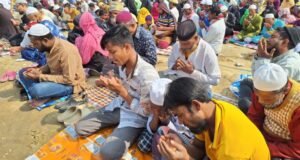 The Turkish president has said that Turkey cannot continue the peace process with the Kurds amid attacks by Kurdish militants on Turkish targets.
The Turkish president has said that Turkey cannot continue the peace process with the Kurds amid attacks by Kurdish militants on Turkish targets.
It came as Nato discussed Turkish campaigns against the Islamic State (IS) group and Kurdish militants.
Turkey has been hit by a series of attacks – including 32 killed by IS-linked militants in the Kurdish-majority town of Suruc on 20 July.
Turkey is backing plans for a buffer zone on the border with Syria.
As well as targeting IS militants, the zone would also allow Turkey to hit positions held by the outlawed Kurdish PKK group.
Turkey says it draws no distinction between the PKK and IS, considering them both terrorist organisations.
Over the past week, analysts say, Turkey has turned its approach to the US-led coalition against IS on its head.
Previously a reluctant partner, it is now flying combat missions and making its airbases available to US jets.
Turkey v Islamic State v the Kurds
Tit-for-tat
Tensions have surged along Turkey’s southern borders with Syria and Iraq – a part of Turkey where a conflict between the PKK and government troops has killed about 40,000 people since 1984.
There has been a series of tit-for-tat attacks between Turkish forces and Kurdish militants.
President Reccep Tayyip Erdogan told reporters in Ankara that it was “not possible to continue the peace process with those who threaten our national unity and brotherhood”.
But the leader of Turkey’s pro-Kurdish opposition party – the People’s Democratic Party (HDP) – dismissed the claim.
HDP chairman Selahattin Demirtas insisted his party’s only crime was winning 13% of the vote in June elections, reported Reuters news agency.
Turkish police have continued to arrest suspected members of IS, the PKK and leftist groups – more than 1,000 over the past week.
Although Turkey insists Syrian Kurds are “outside the scope of the current military effort”, analysts say its new determination to tackle IS is linked to keeping a check on Kurdish militancy.
The Turkish government has long been accused of at best turning a blind eye to the rise of IS – and at worst, actively backing the jihadists against the Assad regime. It has always denied the allegation.
But last week came the suicide bombing in Suruc, southern Turkey, in which 32 died and which Turkey blamed on a militant trained by IS.
Ankara’s strategy is complex. Alongside the IS strikes, Turkey has now bombed several PKK positions and arrested hundreds of suspected members of the group.
Critics believe Turkey is only striking the jihadists as cover for going after its real enemy: Kurdish militants.
Ankara’s reluctance to hit IS earlier, the argument goes, was actually a reluctance to help Kurds fighting IS militants. Now both can be bombed, Turkey is willing to get involved.
‘Safe haven’
Turkey is struggling with more than 1.8 million refugees from the Syrian conflict.
Mr Erdogan said plans being discussed with the US to establish a “secure zone” in northern Syria would pave the way for the refugees’ return.
All 28 Nato member countries met in Brussels to discuss what it called “the threats against Turkey”, a key member of the alliance.
In a final communique, Nato expressed “strong solidarity” with Turkey, and sent condolences to Ankara and “the families of the victims in Suruc and other attacks against police and military officers”.
Earlier, Nato Secretary General Jens Stoltenberg said the organisation would “address the instability on Turkey’s doorstep and on Nato’s border”.
Under the buffer-zone plan, militants would be removed from a 68-mile (109km) stretch west of the Euphrates River, officials say.
 Weekly Bangla Mirror | Bangla Mirror, Bangladeshi news in UK, bangla mirror news
Weekly Bangla Mirror | Bangla Mirror, Bangladeshi news in UK, bangla mirror news





